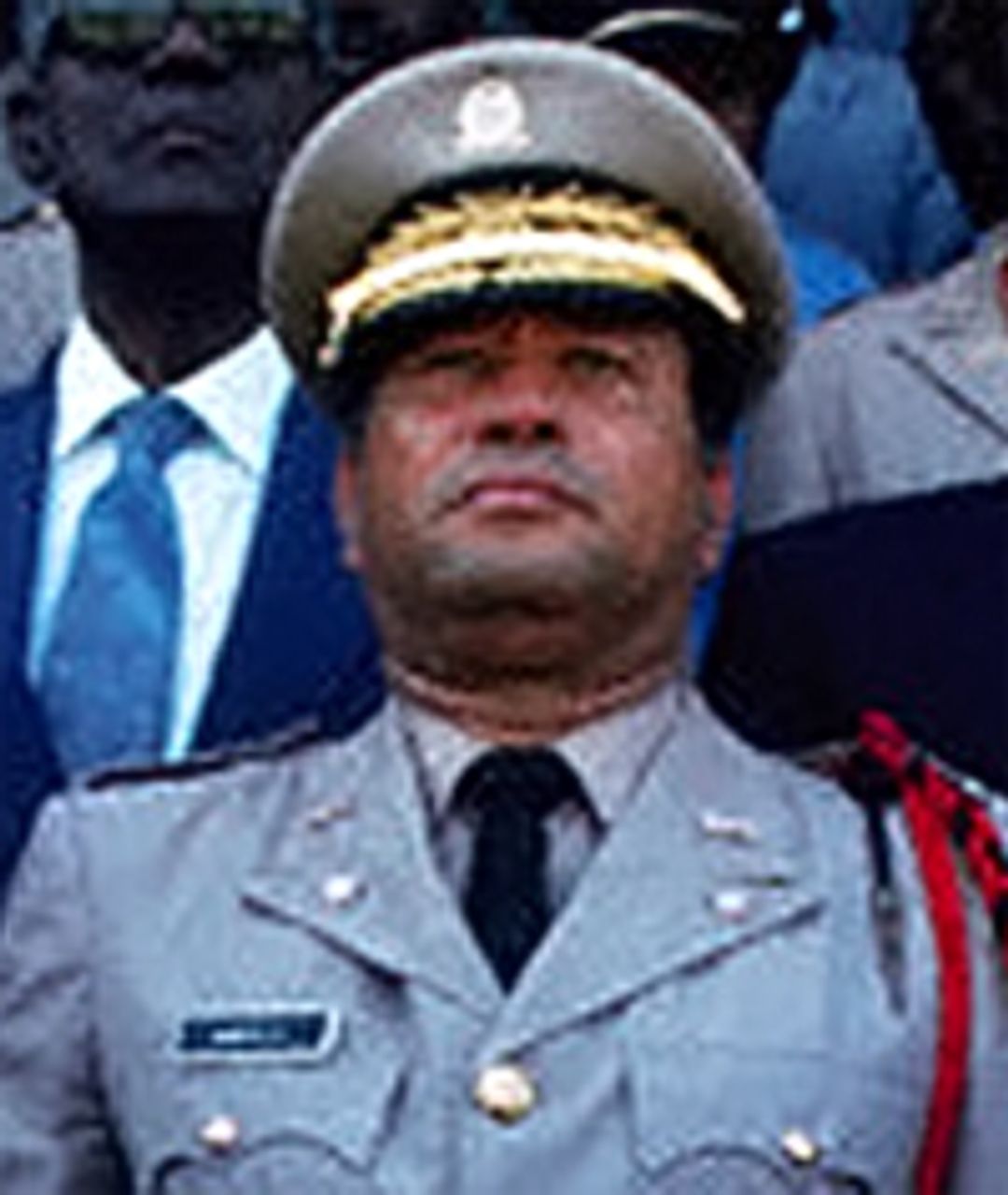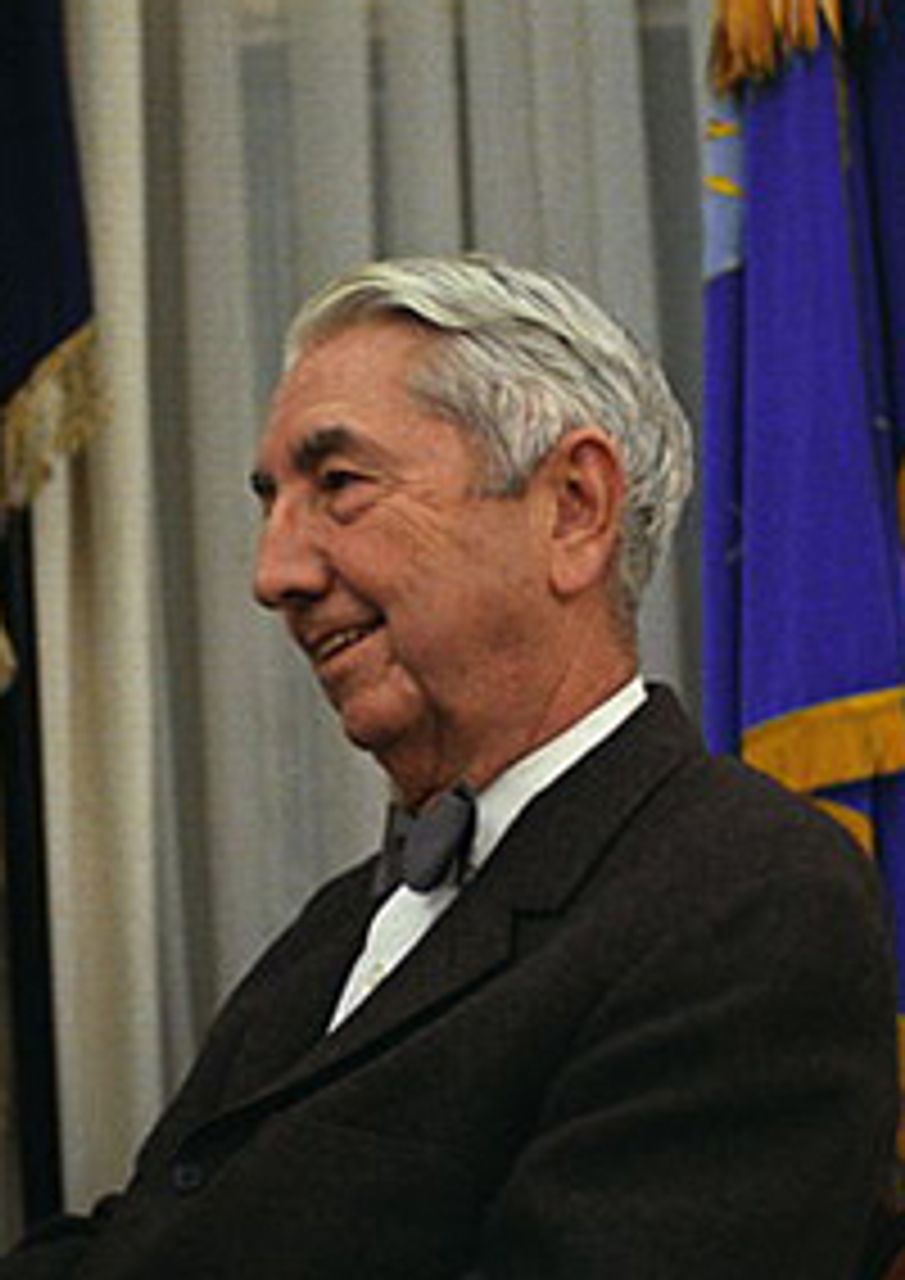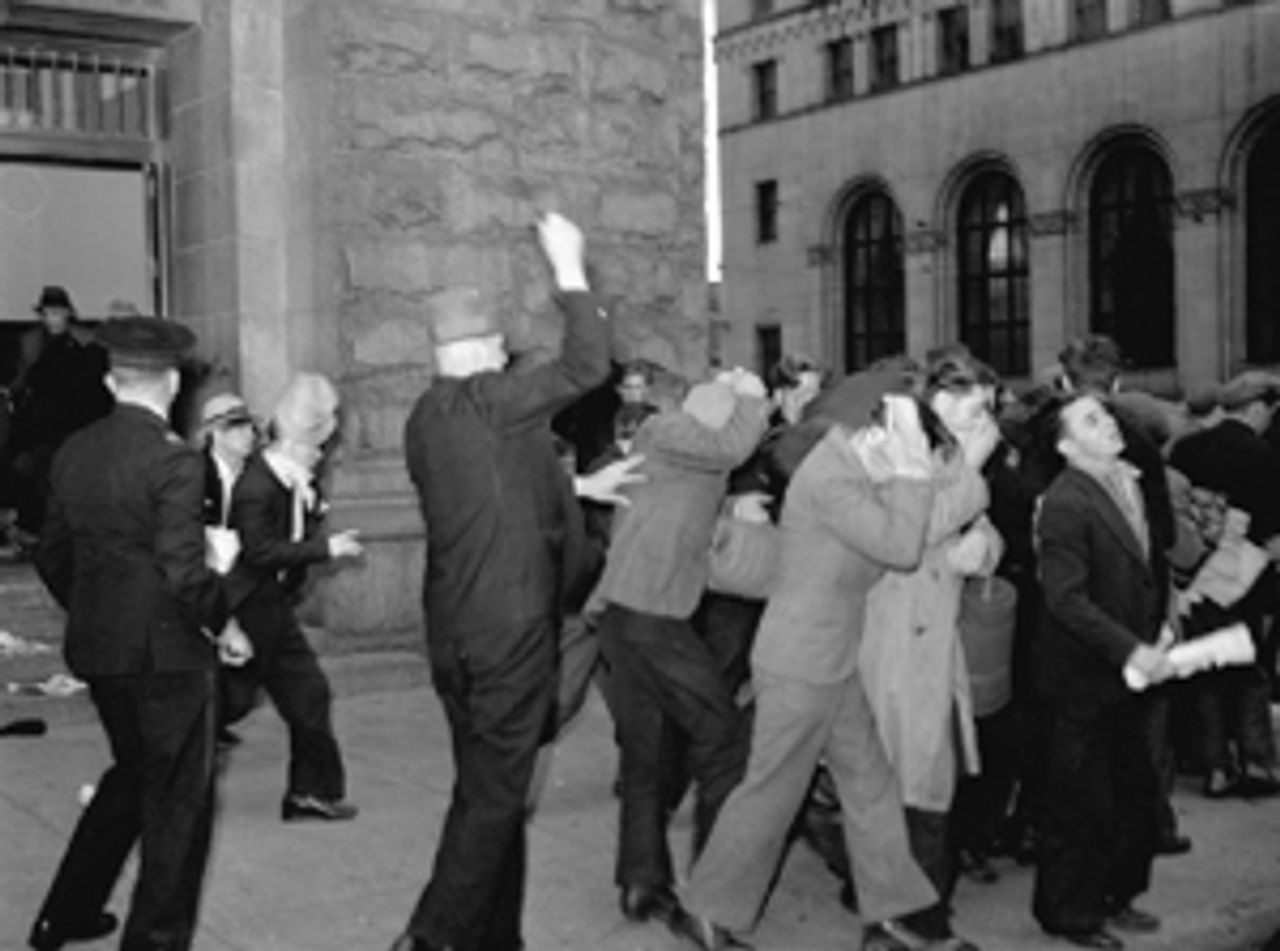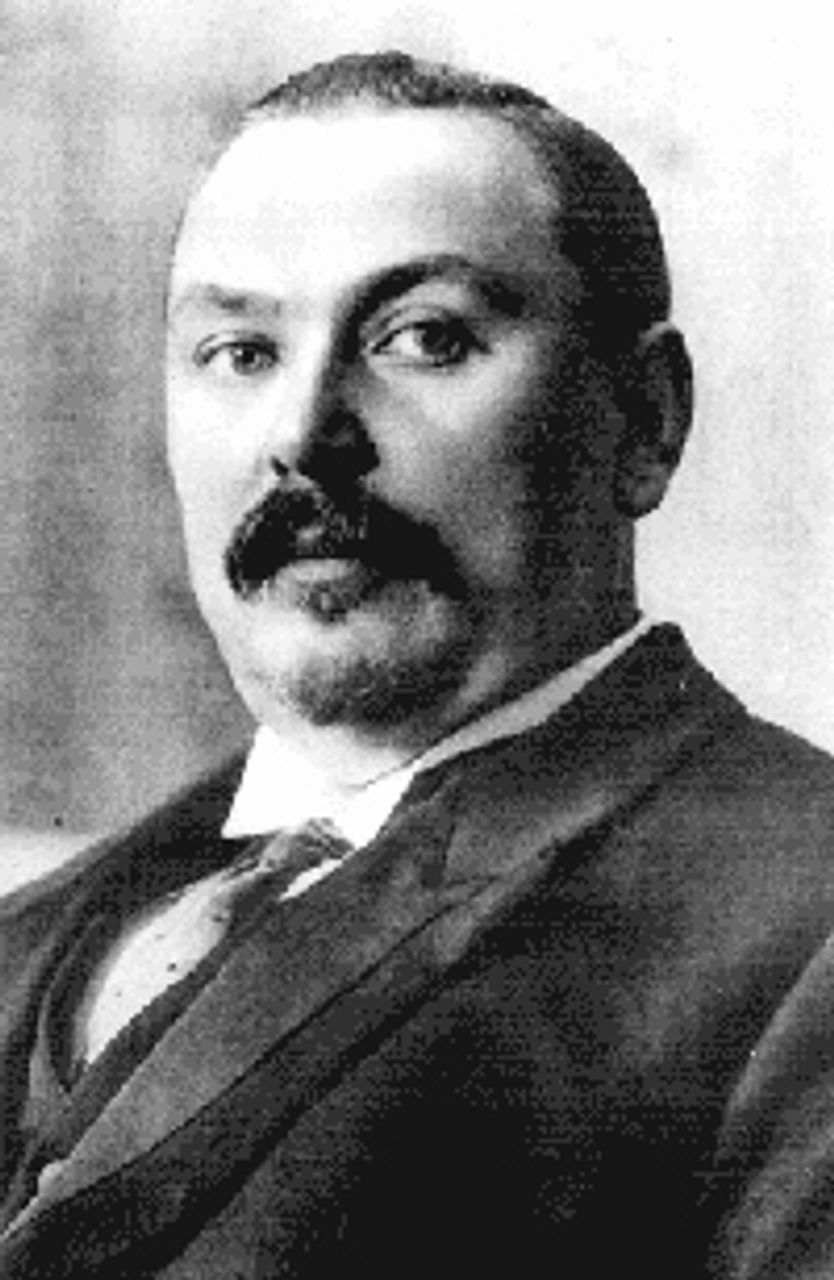This Week in History provides brief synopses of important historical events whose anniversaries fall this week.
25 Years Ago | 50 Years Ago | 75 Years Ago | 100 Years Ago
25 years ago: Military coup overthrows Haitian President Manigat
 General Henri Namphy
General Henri NamphyHaitian President Leslie Manigat’s short-lived rule came to an end on June 20, 1988 when military strongman General Henri Namphy escaped from house arrest and recaptured the presidential palace in a military coup. Only days before, Manigat fired Namphy from his position in the army, charging insubordination, and placed him under house arrest. With the aid of officers loyal to him in the Presidential Guard, Namphy took the palace, forcing Manigat to flee.
Namphy appeared on Haitian television raising a submachine gun in his hand and proclaimed, “The army will lead the country this way.” He would not discuss the fighting at the presidential palace, but troops loyal to Manigat from the adjacent Dessalines Barracks offered resistance to Namphy’s forces and a heavy three-hour gun battle ensued.
Namphy had ruled Haiti for two years after the fall of the hated regime of President-for-Life Jean-Claude (“Baby Doc”) Duvalier in February 1986. With the backing of the US, Namphy’s National Council of Government organized the elections originally scheduled for November 1987, but rescheduled for January after ballot violence killed as many as two hundred. Namphy backed Manigat at the time, but due to the gunpoint character of the election, voter turnout was less than 10 percent.
According to foreign minister Gerard LaTortue, Namphy intended to form a three-man military junta comprised of himself, Maj. Gen. Williams Regala and Col. Prosper Avril. Another military coup would overthrow Namphy in September, led by Avril.
50 years ago: Supreme Court rules against mandated Bible reading in school
 Associate Justice Thomas Clark
Associate Justice Thomas ClarkOn June 17, 1963, the US Supreme Court handed down an 8-1 decision ruling that state-mandated Bible reading in public schools was unconstitutional. The decision in the case of Abington School District v. Schempp followed the June 25, 1962 ruling in Engel v. Vitale, in which the high court had found officially sanctioned prayer in public schools unconstitutional.
The case had been brought by Edward Schempp, a member of the liberal Unitarian Universalist church, on behalf of his daughter Ellory, against a 1928 Pennsylvania law that required at least ten verses of the Bible be read aloud at the start of each school day. The reading was imposed by the Abington Township school district along with the Lord’s Prayer. Four other states had similar laws, and 25 allowed “optional” recitations from the Bible.
While the case made its way through the court system, Pennsylvania’s legislature had modified its law allowing students to excuse themselves from the Bible readings, but Schempp continued his case, which was consolidated by the Supreme Court with a similar Maryland suit, Murray v. Curlett.
In its ruling, the court based itself on the Establishment Clause of the First Amendment, which affirms that “Congress shall make no law respecting an establishment of religion.” The Abington case also continued a trend whereby the court used the Due Process clause of the Fourteenth Amendment to strengthen the Constitutional guarantees of the Bill of Rights on behalf of individuals against the states. For the majority, Justice Thomas Clark wrote, “This Court has decisively settled that the First Amendment’s mandate has been made wholly applicable to the States by the Fourteenth Amendment.”
75 years ago: Police break unemployed occupation on Vancouver’s “Bloody Sunday”
 Plainclothes Mountie clubbing sit-downers
Plainclothes Mountie clubbing sit-downersOn June 19, 1938, “Bloody Sunday,” the local police and Canadian Mounties violently evicted hundreds of unemployed men from Vancouver’s main post office and the Vancouver Art Gallery. The occupation had begun one month earlier as a protest against the lack of jobs, the paucity of Canadian state welfare provisions, and British Columbia Prime Minister Thomas Pattullo’s decision to kill off relief project schemes that had provided state-sponsored work for some of Canada’s unemployed.
At 5 a.m., orders came to Vancouver from Ottawa that the post office and art gallery must be cleared by the local cops, assisted by a squad of Royal Canadian Mounted Police, within half an hour. The early hour was chosen to surprise the occupiers and avoid a time when thousands of the workers’ supporters would witness the violent assault. Workers occupying the art gallery had taken great care to ensure the art works on display were meticulously cared for, and for the same reason offered little resistance to police wielding billy clubs.
When the post office occupiers, led by the political activist Steve Brodie, a member of the Canadian Communist Party, refused demands to vacate the building, police at once used tear gas and clubs. Some of the protesters, including Brodie, were beaten to within an inch of their lives. Afterwards, a battle raged outside, with workers arming themselves with ornate metalwork which garlanded the Post Office. Fighting between the two sides waged up and down Hastings Street, and surrounding shops and premises were smashed up amidst the donnybrook. Thirty-seven occupiers were hospitalized.
The following day Pattullo, who had won election a year earlier under the slogan of “socialized capitalism,” flew to Vancouver from Victoria and met with local delegations who implored him to provide assistance for the unemployed and adopt relief measures for single men who had become stranded in Vancouver from colder parts of Canada.
Pattullo told the Cooperative Commonwealth Federation (Labour) Members of the Legislature that he would not bother with a special session or undertake emergency relief projects. To a group of local Protestant clergy who had requested the granting of emergency food rations to the unemployed men evicted from the central post office he replied, “There comes a time when too much sympathy can be shown to the men. That time has now come in Vancouver.”
100 years ago: Racist Natives Land Act passed in South Africa
 Louis Botha
Louis BothaOn June 19, 1913, the Natives Land Act, also known as the Black Land Act, was passed in South Africa. The Act, passed by the government of Louis Botha, was the first piece of racial legislation since the Union of South Africa came into being in 1910. It provided the legal structure for the apartheid regime that began in 1948.
The Act stated that outside of the areas defined as African reserves by national law, black Africans were prohibited from leasing, buying or acquiring by other means any land except from another African. Europeans were also prohibited from leasing or purchasing land from Africans. In total, only around thirteen percent of the land area of South Africa was designated for ownership by black Africans.
Although they comprised only twenty percent of the population, whites controlled eighty percent of land. Black people were permitted to live outside of the reserves only if they could demonstrate that they were employed by whites.
Black Africans opposed the law, maintaining that it only benefited white people, in particular farmers who demanded more agricultural land and sought to force black Africans to work as labourers.
The Dutch Reformed Church was a prominent supporter of the Act. It passed a resolution on March 4, 1913 which vehemently opposed the sale of land to black Africans, urging the South African Party to “fight this evil.” Most pressure for the Act to become law came from the Orange Free State, where 97 percent of the farms were owned by whites, with only 1.5 percent of the land there owned by black Africans. Black Africans owned 30.4 percent of the land in Natal, 9.3 percent in Cape, and 4.4 percent in Transvaal.
The South African Native National Congress (SANNC), formed in 1912 and which later became the African National Congress, submitted a petition to the British Government and the South African parliament in 1914 to stop the Act, but failed. Largely comprised of tribal chiefs, black church officials, and aspiring layers of the black middle class, the SANNC was hostile to any revolutionary struggle to mobilize the oppressed against Botha’s legislation. The Natives Land Act was not repealed until 1991.
